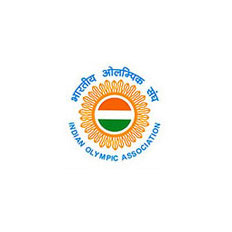History Of Kabaddi
Kabaddi is basically a combative sport, with seven players on each side; played for a period of 40 minutes with a 5 minutes break (20-5-20). The core idea of the game is to score points by raiding into the opponent’s court and touching as many defense players as possible without getting caught on a single breath.
One player, chanting Kabaddi!!! Kabaddi!!!! Kabaddi!!!! Charges into the opponent court and try to touch the opponent closest to him, while the seven opponents make maneuvers to catch the attacker. This is Kabaddi, the match of one against seven, known as the game of struggle.
The players on the defensive side are called “Antis” while the player of the offence is called the “Raider”. The attack in Kabaddi is known as a ‘Raid’. The antis touched by the raider during the attack are declared ‘out’ if they do not succeed in catching the raider before he returns to home court. These players can resume play only when their side scores points against the opposite side during their raiding turn or if the remaining players succeed in catching the opponent’s raider.
The origin of the game dates back to pre-historic times played in different forms. The modern Kabaddi game was played all over India and some parts of South Asia from 1930. The first known framework of the rules of Kabaddi as an indigenous sport of India was prepared in Maharashtra in the year 1921 for Kabaddi competitions on the pattern of Sanjeevani and Gemini in a combined form. Thereafter a committee was constituted in the year 1923, which amended the rules framed in 1921. The amended rules were applied during the All India Kabaddi Tournament organized in 1923.
The All India Kabaddi Federation was formed in the year 1950 to look after the promotion of the game and the Senior National championship started from the year 1952. The new body, Ama¬teur Kabaddi Federation of India (AKFI) came in to existence from the year 1972 affiliated to Indian Olympic Association (IOA) with a view to popularize the game in India & neighboring countries of Asia. After formation of this body, Kabaddi took a new shape and National level competitions started for Junior and Sub-junior boys & girls also
The 1st Asian Kabaddi Championship was held in the year 1980 and was included as a dem¬onstration game in the 9th Asian Games, New Delhi in the year 1982.
The game was included in the South Asian Federation (SAF) games from the year 1984 at Dacca, Bangladesh. Kabaddi was included as a discipline in the 11th Asian Games Beijing 1990 and India won the lone Gold Medal of Kabaddi in the 11th Asian Games Beijing 1990. India is the reigning champion in the succeeding Asian Games held in Hiroshima 1994, Bangkok 1998, and Busan 2002 & recently at Doha 2006 and created history in Indian sports by winning five consecutive Gold medals in the Asian Games so far.
1st World Cup of Kabaddi was organised in 2004 at Mumbai (India), India won the First World Cup by beating Iran in the finals. The second World Cup was held Panvel (India) in 2007 and India once again became Champion.
The First Asian Women Championship was held at Hyderabad in 2005 and India won the Gold Medal. Women Kabaddi was included for the first time in the South Asian Games held in Colombo, Sri Lanka in 2006.
For the first time in the history of Asian Games a separate indoor stadium was built for Kabaddi competition and training in the 15th Asian Games held at Doha [Qatar] 2006. The training/ warming up courts and main field of play was made up of puzzle mats of Korean make. The main field of play was equipped with a giant public screen, which displayed replays and the running score. Two ‘Tissot’ plasma scoreboards, info terminals for the presentation crew, the ceremony crew and the media were provided.
The 15th Asian Games Doha provided an excellent opportunity to showcase Kabaddi to the Europeans and Australians who were in great numbers in organizing the Asian Games. A good many spec¬tators belonging to European countries, USA, Australia, Western Asia, and the Mediterranean countries, who saw the Game for the first time, were very impressed with the simple rules and the thrill of the sport and desired to introduce the sport in their countries. This has given Kabaddi very good and positive exposure for its future development in the continents of Europe, USA, Australia and Africa.
Kabaddi was included in the 2nd Asian Indoor games held at Macau from 25th October to 3rd November 2007. Once again India Won the Gold Medal. Kabaddi Men & Women both was included in 1st Asian Beach Games being hosted by Indonesia in 2008 at Bali, India Won Both the Gold Medals of Men & Women Events.
There has been a gradual but significant change in the trends of the game since the past 50 years. What was once considered a game of brawn is not so now. The introduction of mats, shoes, new tech¬niques & changes in rules has made the sport more interesting and advantageous to skilled players who are now able to defeat heavier players with better skills & techniques.









